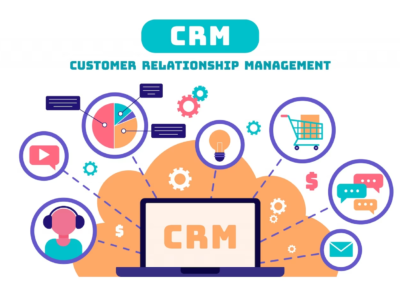
Do you know the difference between digital experience platform vs CMS
Do you ever feel like you need to choose between a CMS and a digital experience platform? It’s not an easy decision, is it? Well, don’t worry. In this blog post, we’ll break down the key differences between these two types of platforms, so you can make the best decision for your business. Stay tuned!
1. What is a CMS?
A Content Management System (CMS) is a software platform that enables users to quickly create, manage, modify, reuse, and publish content.
The CMS enables users to create and manage one or more websites without having to code them from scratch. Multiple brands can be hosted from a single CMS, and site design and functionality can be quickly customized.
2. What is a DXP?
The Digital Experience Platform (DXP) is a new category of enterprise software that aims to meet the needs of companies undergoing digital transformation in order to provide better customer experiences.
DXPs can be a single product or a collection of products that work together. DXPs enable businesses to digitize business operations, deliver connected customer experiences, and collect actionable customer insight.
3. DXP vs CMS from Sites to Experiences

People began using the web in new ways as web technology advancements created richer, more dynamic user experiences. Blogs, social media, and e-commerce websites have all become popular for creating, sharing, and distributing content across multiple platforms. The internet became an important channel for businesses.
Smartosc solutions : BACKBASE DIGITAL BANKING, BUY NOW PAY LATER, LOS, CDP, EKYC, DIGITAL ONBOARDING
Instead of having text or images on a single web page, an application may use them in an application. Then there were kiosks, internet appliances, games, and other content delivery methods. Data-driven systems, such as personalization engines and search applications, began to manage and support these experiences.
This digitization trend has made content a priority for IT, product, and marketing teams in businesses. These teams began to require more adaptable methods of managing workflow, integrating systems, and delivering content to users across all platforms.
4. How are DXPs different?
Digital experience platforms (DXPs) assist organizations in adapting to the digital age’s exponential shifts. Here’s how it’s done:
While a CMS helps with the orchestration and delivery of content that is essential to digital experiences, a DXP goes above and beyond by offering automation and smart delivery across websites and portals, apps and IoT devices, and more. It also provides insight into the reception and outcomes of these data, analytics, and, in many cases, AI and machine learning experiences.
A DXP streamlines engagement and provides the coveted 360-degree view of customers, across channels and in real-time, elevating CMS analytics to a whole new level of personalization.
In a nutshell, a DXP is a tool (or set of tools) that enables personalized, cross-channel digital experiences. The right one will replace a large portion of your current martech stack while seamlessly integrating with the rest of it.
Conclusion
Now that you understand the difference between a digital experience platform and a CMS, it’s time to decide which is best for your company. The good news is that both of these platforms have their merits and can be great tools for companies looking to improve their online presence.
However, if you’re still undecided on which one to choose, our team at SmartOSC Fintech would be happy to help. Contact us today and let us show you what we can do with a digital experience platform or CMS!


